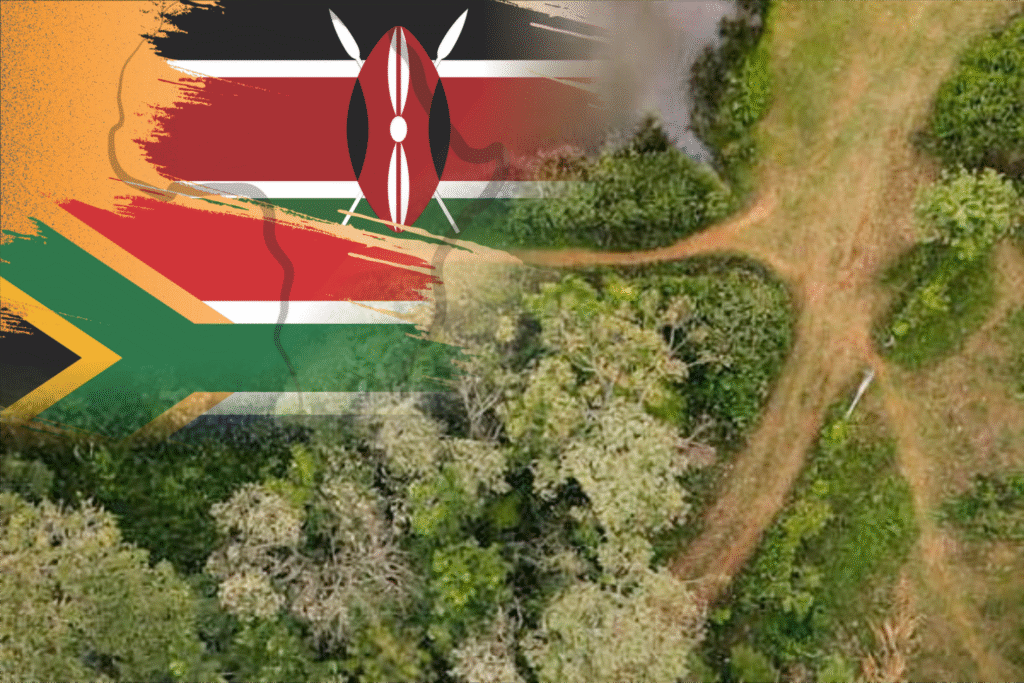Public Concern for Climate Change Falls in Kenya and South Africa: But Forests Still Strike a Deep Chord

NAIROBI – Kenya: public concern for climate change has sharply declined in Kenya and South Africa in 2025, even after the planet’s hottest year on record, according to a new global survey by the Forest Stewardship Council (FSC) and IPSOS. Yet beneath this cooling concern lies a more complex story. One that blends family survival, cultural identity and business accountability.
The 2025 Global Consumer Awareness Survey, released this week at the FSC General Assembly, shows that global anxiety about war and conflict (52%) now far exceeds concern about climate change (31%). In Africa, the decline is steepest in Kenya, where climate concern dropped from 42% in 2022 to just 30%. South Africa also saw a significant fall, from 32% to 25%.
Still, Kenyans rank highest worldwide for concern about deforestation, with 47% identifying it as a top environmental issue, more than any other country surveyed. It’s a paradox that reveals how climate awareness is being reframed through lived experience. When people see forests under pressure, they connect the dots between nature, water and livelihoods. Protecting forests is about stability, elasticity and hope in a changing climate. This represents the bulk-concerns of family and livelihoods, which could be termed as the human face of forest loss.
![]()
To many Kenyan families, forests are not distant green expanses, they are water towers, food sources and ancestral homes. The Mau Forest, for example, supports millions who rely on its rivers for farming and household water. As droughts intensify, 40% of Kenyan respondents in the survey named droughts and floods as top environmental threats, well above global averages.
This connection between nature and daily survival explains why, even as abstract climate change fades from view, the tangible fear of losing forests and the livelihoods they sustain, remains acute. A cultural and social pulse.
In communities from Kericho to Kisii, forest protection carries deep cultural meaning. Sacred groves, traditional medicine, and communal rituals tie human identity to the natural landscape. The erosion of forests, thus threatens not only ecosystems but also collective memory and cultural heritage. This is a loss to the future that the older generations had warned before, because it’s harder to reverse than the trees themselves.
However, with business and trust in sustainability, the survey also highlights a growing demand for integrity in the marketplace. In Kenya, 79% of consumers say sustainability information on products should be certified by an independent body. A striking signal that trust, not slogans, drives purchasing behavior.
Across 29 global markets, 72% of consumers prefer products that do not harm plants or animals, showing that environmental values still influence spending, even when climate change slips down the political agenda. For businesses, this suggests that green fatigue does not equal consumer apathy. This means people are asking for proof, not promises.
![]()
Politics and policy gaps: politically, the decline in climate concern poses a risk. If public pressure wanes, administrators may slow down environmental reforms just as Africa faces record droughts, biodiversity loss and deforestation linked to expanding agriculture and urbanization.
Meanwhile, South Africans showed the highest concern (42%) for the loss of plant and animal species, underscoring a regional awareness that biodiversity protection remains a shared continental challenge. A call for integrated action.
As wars, pandemics and economic strains dominate global priorities, FSC leaders warn that climate action must not be sidelined. People clearly want sustainability, transparency, fairness and proof that their choices matter.
The message from Africa’s forests is clear: in times of crisis, environmental protection is not a luxury, but a lifeline that ties economic stability, cultural continuity and human dignity together.






